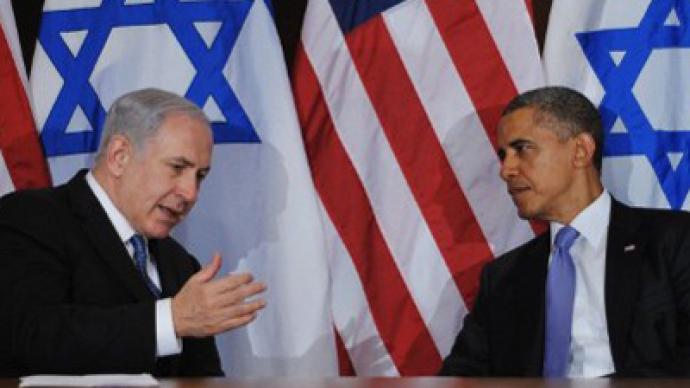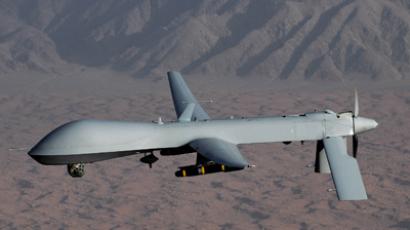Israel ready to strike Iran without Washington's approval?

Both American and Israeli officials say that the decision to postpone a massive joint missile drill scheduled for this spring has nothing to do with hostilities with Iran, although insiders suggest something quite the contrary.
The Austere Challenge 12 drill, originally scheduled for April 2012, was slated to be the largest missile drill ever conducted in cooperation between the US and Israel. A decision to put the drill on hold this week has thus prompted many to speculate as to why best buds America and Israel are having second-guesses. “There were a variety of factors at play in this case, but in general, leaders from both sides believe that optimum participation by all units is best achieved later in the year,” Pentagon spokesman Navy Captain John Kirby said, reports Reuters.Initial reports suggested that the decision was reached by both parties as they bide time to begin testing. The latest reports out of Israel, however, peg the decision as one made by Israeli Prime Minister Binyamin Netanyahu alone, with no insight out of Washington. According to those sources, Israel is upset that the US has acted hesitantly so far in its efforts with Iran, whom is believed to be working on a nuclear weapons program.Israeli sources speaking anonymously to Debka, a Middle East military news outlet with strong connections to both the Israel and US intelligence communities, say that the decision to postpone the drill does not come as a joint agreement between Tehran and Washington, but is rather a decision from Netanyahu himself who has become worried by America’s lack of aggression against Iran as of late.The test, originally slated for this April, would put America's Theater High Altitude Area Defense, or THAAD, missile system in operating alongside its ship-based Aegis system and Israel's own program to work with Arrow, Patriot and Iron Drone missiles. Both nations now put an estimated drill date sometime in later 2012. The decision to postpone the drill marks the first time ever that American and Israeli forces have put a joint military exercise on the backburner, prompting many to question what underlying factors are in play. As tensions between Iran and the US worsen and Washington does little to do as Tehran laughs in their face, some say that Israel is fed up that America, usually a big brother of sorts quick to respond to such behavior, is hiding with its tail between its legs.One Israel authority speaking under condition of anonymity tells Reuters, “It’s for a host of reasons, mainly logistical, but not the reason you cited [tensions with Iran].”Others aren’t so sure.According to the latest report compiled from Debka’s sources, Israeli officials have become increasingly irritated with America’s reluctance against going up with Iran in recent days. Deputy Prime Minister Moshe Yaalon explicitly called the Obama administration "hesitant" on January 15, reports Debka, which was followed by a warning only a day later by the nation’s Foreign Minister Avigdor Lieberman, in which he urged the US to "move from words to deeds.”Sources suggest to Debka that Israel and Iran are at the zero hour, and if the US won’t strike first, the Israelis will.Although the US has made moves that suggest it is prepared to take on Iran, it has done little to actually advance on them as rumors abound of a nuclear weapons program. In recent weeks, America has mobilized troops into the adjacent Strait of Hormuz and the nation of Kuwait, which adds to a massive toll of troops present to the east of Iran in Afghanistan and Pakistan. Additionally, the US has equipped neighboring United Arab Emirates with weaponry. The eventual joint missile drill, if it comes to fruition, will install thousands of US troops in Israel.To Netanyahu, however, that might not be enough. Postponed drills only underscore Israel's determination to strike on Iran without consulting Washington. According to Debka, four errs on part of the Obama administration over the hostilities with Iran areto blame for the postponement of the missile drill. For those following the escalations between Washington and Tehran, they have been apparent from the get-go. With Israel a more easy target than the US though, Netanyahu seems more concerned that a war will erupt than far away America, who brought an end to the eight year Iraq War only a month ago.Those factors, report Debka, form a list that begins with the capture of a stealth American drone by Iranian forces in early December. Despite hijacking, downing and decoding the plane’s top-secret technology, Washington has done nothing to react other than ask Iran nicely to return the craft. Iran, in return, has only mocked the US.Since the downing of the RQ-170 drone, other incidents have only worsened relations between the parties. The US offered to impose sanctions on Iran, to which Tehran responded by threatening to close the Strait of Hormuz. Despite a back-and-worth with colossal implications, no side has striked yet. Adds Debka, Israel forces are also concerned over America’s reluctance to act on Iran’s procurement of a 20-percent grade uranium enrichment program at the underground Fordo facility near Qom. Obama had originally said such a program would have detrimental effects for Israel, and although news of the program’s actuality has existed since early January, the White House has done nothing to react. All Washington has offered, says Debka, is to go about imposing sanctions on the central bank and energy industry of Iran, although those moves will be spread out over a span of the year. In the interim, a lack of restrictions waged at Iran could give them up to 12 months to easily continue their nuclear program and perhaps even launch at attack on Israel or America. Only last month, Defense Secretary Leon Panetta said the planned joint exercise served as the Obama administration’s “unprecedented levels of defense cooperation with Israel to back up our unshakable commitment to Israel’s security.” Just weeks later, however, Netanyahu seems ready to fight Iran on its own.














